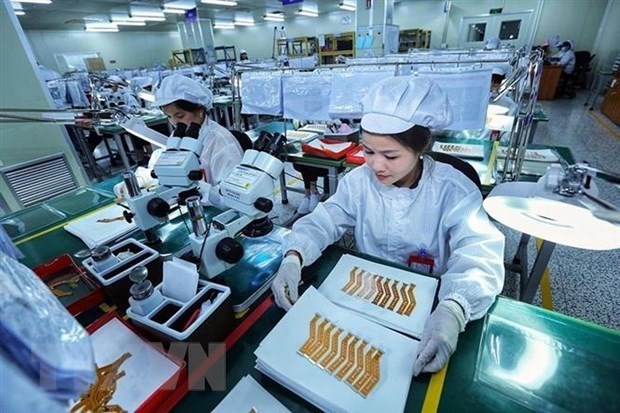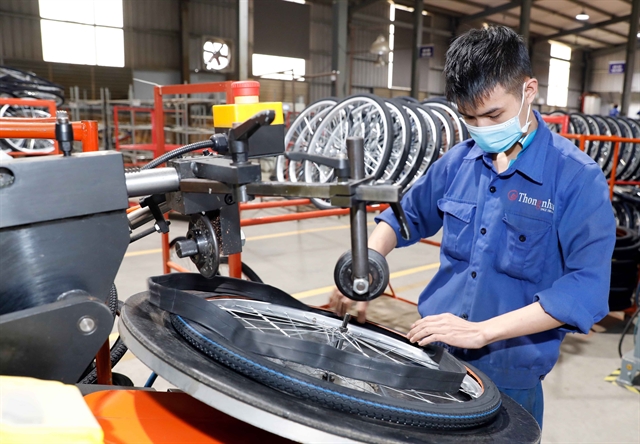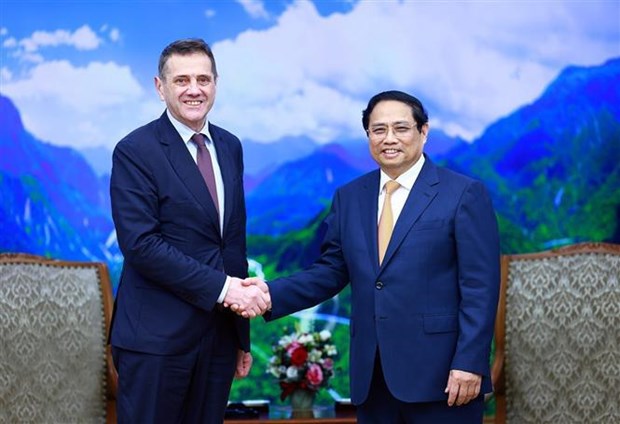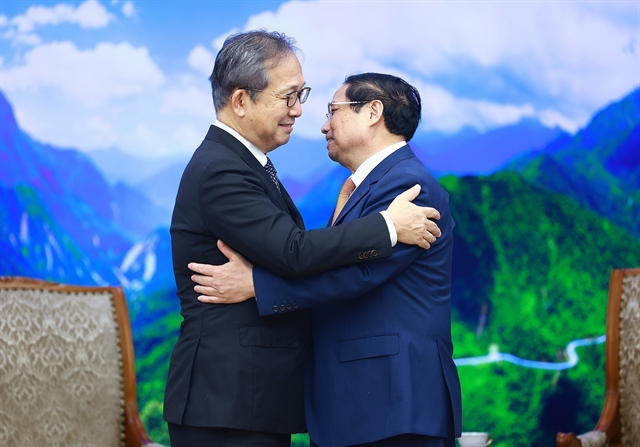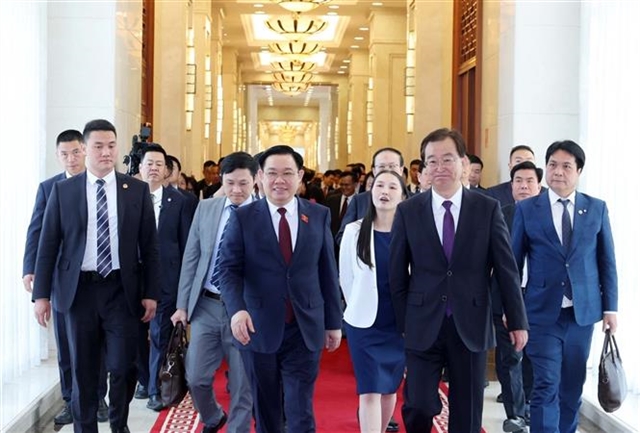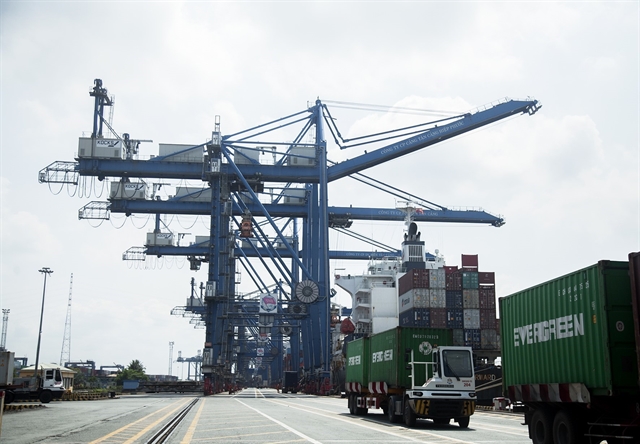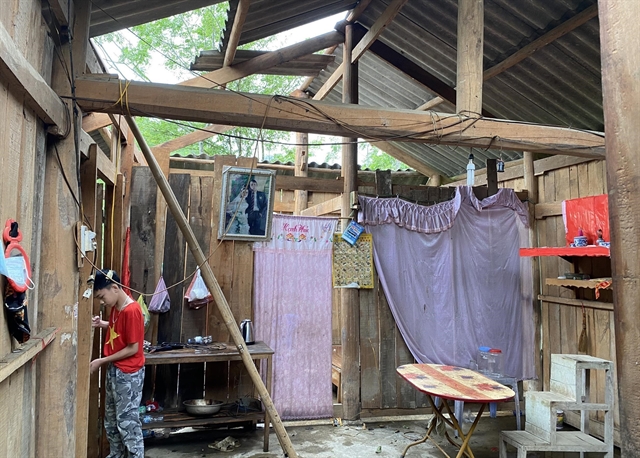 Society
Society

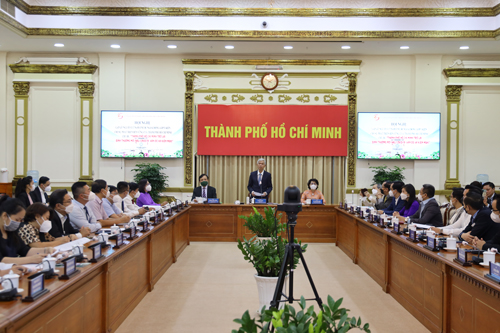
|
| Võ Văn Hoan (standing), vice chairman of the People’s Committee, speaks at a conference with overseas Vietnamese about ways to promote the city’s sustainable economic development post-pandemic. Photo courtesy of the HCM City Press Centre |
HCM CITY — HCM City needs “breakthrough measures” for an economic recovery next year, speakers said during an online and offline meeting on Tuesday with overseas Vietnamese across the world.
More than 130 Vietnamese delegates from 21 countries and territories discussed ways to promote the city’s sustainable economic development post-pandemic.
Speaking from Singapore, Prof. Dr. Vũ Minh Khương, lecturer at the Lee Kuan Yew School of Public Policy at the National University of Singapore, said the city should improve governance, develop a specific strategy for recovery, and improve administrative procedures and the business climate.
Khương, who is a member of the Economic Advisory Group for the Government from 2016-2021, said the city should promote economic cooperation with the neighbouring provinces of Bình Dương, Đồng Nai, Bà Rịa-Vũng Tàu, Long An, Tiền Giang and Tây Ninh.
Danny Võ Thành Đăng, a Vietnamese-Singaporean, said the city needs to develop its own brand as part of an effort to gradually raise the status of the city to continue to attract foreign investment.
Professor Đặng Lương Mô, a Vietnamese-Japanese professor at Hosei University in Tokyo, said the city should speed up digital transformation. “It is vital to enhance administrative services and management activities by applying hi-tech.”
To do so, local administrative agencies must have sufficient financial and human resources.
Lâm Việt Tùng, Vietnamese-Dutch, who is an IT-Telecom consultant for Vodafone Ziggo (in the Netherlands), said the key for sustainable development is digital transformation.
He noted, however, that funding for digital transformation accounts for only 1 per cent of GDP, and that at least 3-4 per cent of GDP is needed in a big city like HCM City for it to be able to catch up with other major cities around the world.
Prof. Hà Tôn Vinh, Vietnamese-American, urged the city to continue to offer support to the poor and labourers and enterprises affected by the pandemic.
“It also needs to promote a circular economy,” he added.
Phạm Sanh Châu, the Vietnamese Ambassador to India, said the country’s largest city would secure sustainable development only after solving poverty and inequality. “The city must also focus on industry and digital industry, along with biotechnology and semi-conductors.”
It should optimise trade, investment and tourism opportunities in India through the Indian community in the city and the 5,000 Vietnamese living in India, according to Châu.
Recovery in 2022
Speaking at the conference, Võ Văn Hoan, vice chairman of People’s Committee, said: “We aim to recover the economy next year to pre-pandemic levels.”
He said the city would continue to support businesses and enforce pandemic prevention and control measures as part of its economic recovery plan.
The main tasks for 2022 will be to “adapt safely, flexibly and effectively control the pandemic; improve the quality of urban government; support businesses; and improve the business climate,” Hoan said.
The city has a five-year economic recovery plan with two phases.
Until the end of 2022, the city will continue to focus on pandemic prevention while also reviving the economy and supply chains, creating employment and ensuring workers’ welfare.
From 2023 to 2025 it will resolve problems faced by the city such as traffic jams, flooding, air pollution, and others.
After nearly two months of implementation of a government resolution on how to adapt to the pandemic, the city has controlled the spread of the coronavirus to a large extent and has started reopening its economy
The city has achieved significant growth over the past five years. GRDP increased by an average of 6.41 per cent in the 2016-20 period, contributing more than 22.2 per cent of the country’s economy, according to Hoan.
The city also attracted more than $5.8 billion worth of foreign direct investment this year, while foreign remittances rose by nearly 9 per cent to an estimated $6.6 billion.
However, due to the impact of the pandemic, the city’s economy has for the first time seen negative growth this year (minus 6.78 per cent).
There are some 5.3 million overseas Vietnamese living and working in 130 countries and territories. — VNS




